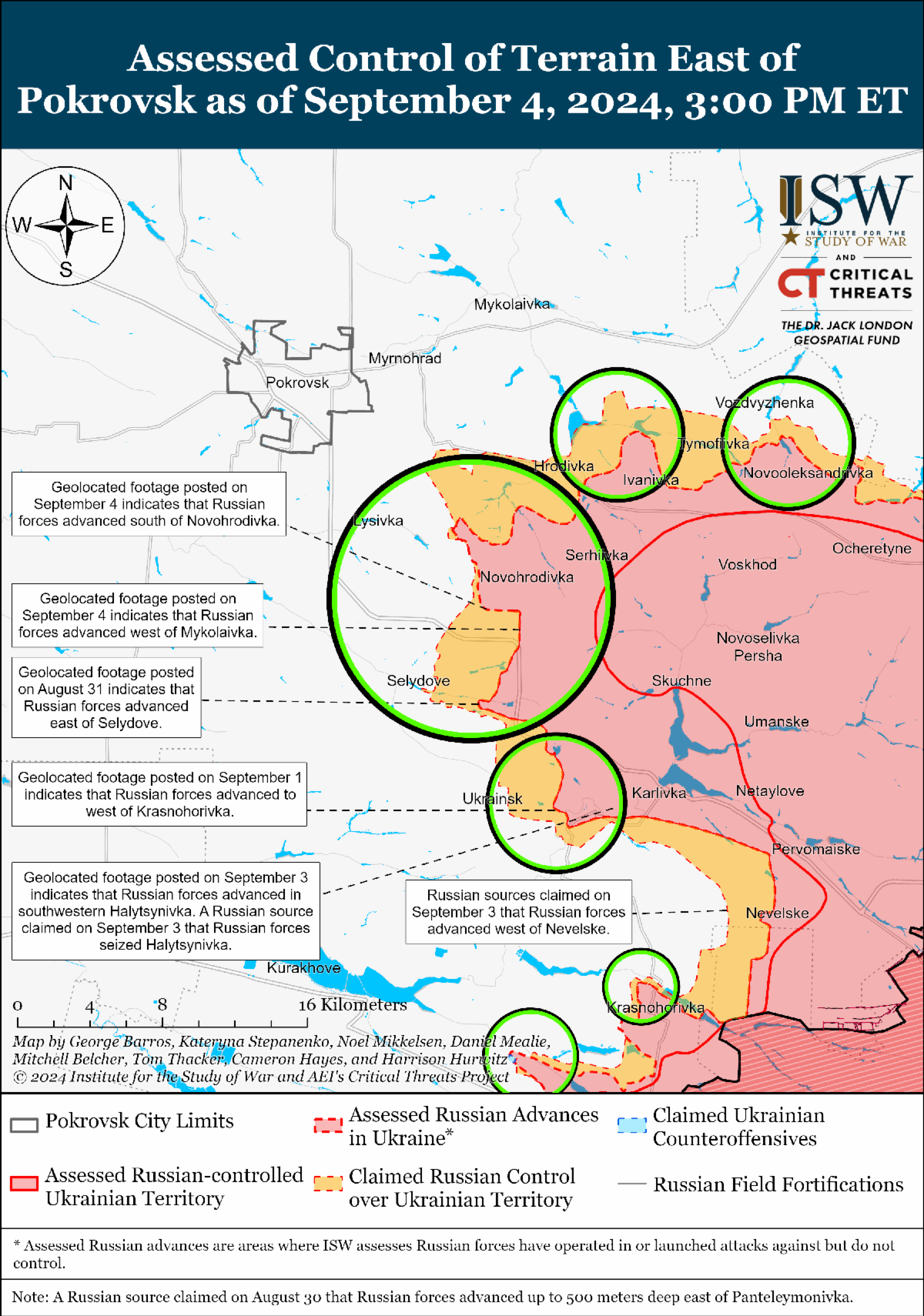Russia appears to be relying on several countries, including India, Serbia, and the People’s Republic of China (PRC), as part of its efforts to evade Western sanctions. The Financial Times (FT) reported on September 4, citing leaks from Russian state correspondence, that Russia’s Industry and Trade Ministry devised a plan to spend nearly $1 billion on securing critical electronic components in October 2022, which reportedly included the possibility of building facilities in India to gain access to such components. FT reported that the leaked documents reveal that Russia has been covertly acquiring sensitive dual-use electronics from India with “significant reserves” of Indian rupees amassed by Russian banks from increasing oil sales to India. The extent to which Russia has implemented this plan remains unclear, although ISW assesses Russia is engaged in a wider effort to evade Western sanctions and procure sanctioned electronic components and machinery necessary for Russia's defense industry production via foreign actors.
Russian President Vladimir Putin met with Serbian Deputy Prime Minister Aleksandar Vulin on September 4 on the sidelines of the Eastern Economic Forum (EEF) in Vladivostok, Primorsky Krai. Putin and Vulin discussed the removal of bilateral trade barriers to reverse declining trade levels, and Vulin stated that Serbia will not impose sanctions on Russia and will not allow its territory to be used for “anti-Russian” actions. Vulin’s comment may have been intended in part to avert some of Putin’s annoyance following Serbia’s recent purchase of 12 Rafale jets from France in a likely effort to diversify the country’s arms suppliers away from Russia. Putin stated that he hopes to see Serbian President Aleksandar Vucic at the upcoming October 2024 BRICS summit in Kazan. Putin also met PRC Vice President Han Zheng on September 4 and emphasized that the EEF serves as a valuable platform for enhancing mutual understanding and fostering Russia–PRC economic cooperation. Kremlin Spokesperson Dmitry Peskov stated on September 3 that Putin briefed PRC officials about the outcomes of his recent trip to Mongolia, during which Putin emphasized growing regional trade and cooperation with the PRC and Mongolia. ISW has previously observed indications that foreign companies and banks, including in the PRC, have been increasingly reluctant to conduct transactions with Russian actors due to fears of Western secondary sanctions, which could be affecting Russia's sanctions evasion efforts.
Key Takeaways:
- Russia appears to be relying on several countries, including India, Serbia, and the People’s Republic of China (PRC), as part of its efforts to evade Western sanctions.
- Russian forces struck civilian infrastructure in Lviv City, Lviv Oblast and Kryvyi Rih, Dnipropetrovsk Oblast during another mid-sized combined drone and missile strike on the night of September 3 to 4.
- Ukrainian authorities are investigating another report of apparent Russian war crimes against Ukrainian soldiers.
- German Chancellor Olaf Scholz announced on September 4 that Germany will provide 17 additional IRIS-T air defense systems to Ukraine by 2026.
- Ukrainian officials announced a series of resignations and appointments among senior members of the Ukrainian cabinet on September 3 and 4.
- Ukrainian forces reportedly made marginal advances in Kursk Oblast amid continued fighting throughout the Ukrainian salient on September 4.
- Russian forces recently advanced southeast of Pokrovsk and southwest of Donetsk City, and Ukrainian forces recently regained positions west of Donetsk City.
- The Russian Ministry of Defense (MoD) continues to portray itself as suitably addressing its obligations towards Russian veterans of the war in Ukraine.
| 





 [국방부] 「제2차 한-유엔사회원국 국방장관회의」 개최
[국방부] 「제2차 한-유엔사회원국 국방장관회의」 개최
 [국방부] 제5차 한미 확장억제전략협의체 회의 공동언론발표문
[국방부] 제5차 한미 확장억제전략협의체 회의 공동언론발표문